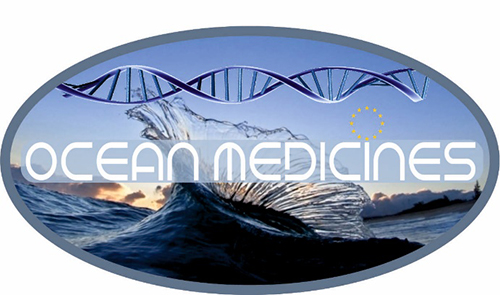Giuseppina Barsacchi
Dipartimento di Biologia
Università di Pisa
Ferdinando Boero
Dipartimento di Scienze e Tecnologie Biologiche e Ambientali
Università del Salento, Lecce
Gary G. Borisy
Director Marine Biological Laboratory (MBL)
Woods Hole, Mass. Usa
Peter Bukill
Director of the Sir Alister Hardy Foundation for Ocean Sciences and professor of Ocean Science, University of Plymouth, Plymoth, UK
Rita R. Colwell
Professor at University of Maryland College Park and at Johns Hopkins University Bloomberg School of Public Health Environmental Health Sciences, Center for Water and Health
Baltimore, MD, USA
Paul K. Dayton
Integrative Oceanography Division
Scripps Institution of Oceanography
University of California
San Dego, La jolla, CA, USA
Carlos Duarte
Director Instituto Mediterraneo de Estudio Avanzados
Mallorca, Illes Balears, SPAIN
Aldo Fasolo
Dipartimento di Biologia Animale e dell’uomo
Università di Torino
Richard Timothy Hunt – Premio Nobel per la Medicina 2001
London Research Institute, Clare Hall Laboratories
London, UK
Thomas Kiørboe
Professor, Technical University of Denmark
Danish Institute for Fisheries Research
Afd. for Havøkologi og Akvakultur, Kavalergården 6
Charlottenlund, DENMARK
Iain Mattaj
Director General European Molecular Biology Laboratory EMBL
Heidelberg, GERMANY
Christiane Nüsslein-Volhard - Premio Nobel per la Medicina 1995
Director of Dept. of Genetics
Max Planck Institute for Developmental Biology
Tübingen, GERMANY
Noriyuki Satoh
Department of Zoology, Kyoto University
Kyoto, JAPAN
Torsten Wiesel – Premio Nobel per la Medicina 1981
Vincent and Brooke Astor Professor Emeritus and President Emeritus
The Rockefeller University, Laboratory of Neurobiology
New York, NY, USA
Giuseppina Barsacchi
Dipartimento di Biologia
Università di Pisa
via G. Carducci, 13
56010 Ghezzano (Pisa) - Italia
Peter Burkill
Marine Institute
Plymouth University
Drake Circus
Plymouth PL4 8AA - United Kingdom
Rita R. Colwell
Center for Bioinformatics and Computational Biology
University of Maryland
296 Biomolecular Sciences Bldg.
Room 3103
College Park, MD 20742 - USA
Roberto Danovaro
Dipartimento Scienze del Mare
Università Politecnica delle Marche
Via Brecce Bianche
60131 Ancona - Italia
Aldo Fasolo
Dipartimento di Biologia Animale e dell’Uomo
Università di Torino
Via Accademia Albertina, 13
10123 Torino - Italia
Bernard Kloareg
Station Biologique Roscoff
Place Georges Teissier - BP74
29682 Roscoff Cedex - France
Noriyuki Satoh
Marine Genomics Unit
Okinawa Institute of Science and Technology
1919-1 Tancha, Onna-son
Kunigami-gun
904-0495 - Japan

Summary
Ocean Medicines is a network of academic, research centres and SMEs across Europe, with proven experience in higher education, training and endowed with state-of-the art scientific and technical expertise and infrastructures. The aim is to establish a network of collaboration and knowledge-exchange between industrial and academic partners to further develop lead compounds from marine microorganisms having anticancer or anti-infective effects that have already been identified by the consortium. To achieve this goal a mobility programme will be set up to prepare a new generation of marine biodiscovery scientists that will be trained on how to isolate compounds from bioactive bacteria/microalgae and take these through to semi-industrial scale-up for further development and toxicity testing at the pre-clinical level. The Ocean Medicines programme also considers commercialization, innovation and entrepreneurship activities including how to start a new business and how to favor an industrial career to seconded researchers. The establishment of this international research network, with its synergistic effects, will significantly contribute to advance all of the involved Institutes/SMEs to the top level in the field of marine drug discovery.
What we do
SZN is involved in WP2 which targets species of bacteria and microalgae that produce bioactive metabolites with anticancer/anti-infective activities; these species will be bulk cultivated under different light/temperature/pH conditions to optimize production of active metobolites. Extracts and fractions will be further screened and chemically analyzed by the other partners.
Partners
SZN, IBP-CNR, SeaLife Pharma, eCoast, Epi-C, UiT, UNIABDN, MEDINA, UWC
Research Area
Marine Biotechnology
SZN role
Partner
Principal Investigator
Project Manager
Donatella De Pascale
Project lifetime
December 2015 - December 2019
Funding Institutions
European Commission, under the 7th Framework Programme
Personnel involved
Adrianna Ianora, Principal investigator
Giovanna Romano, Experienced researcher










